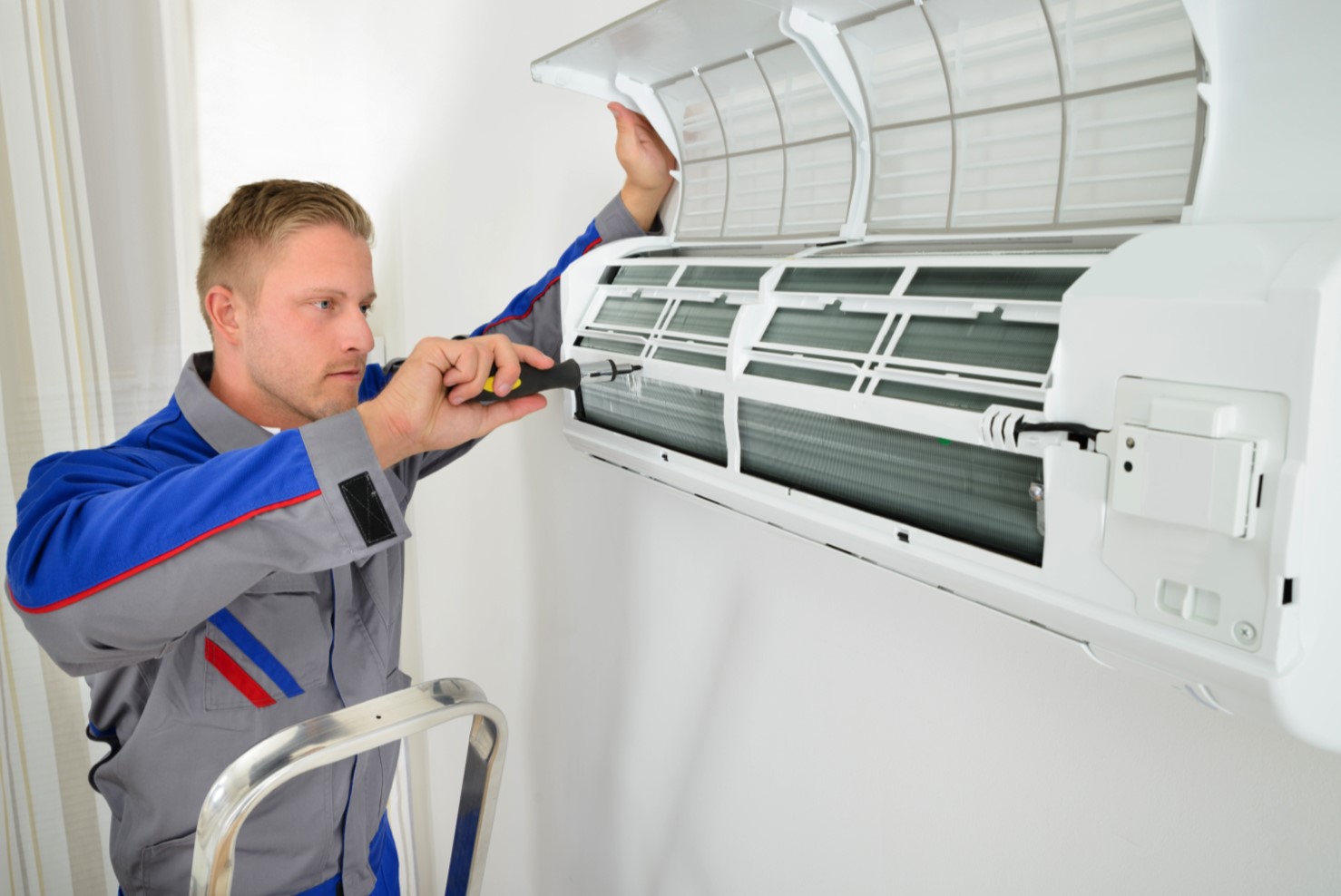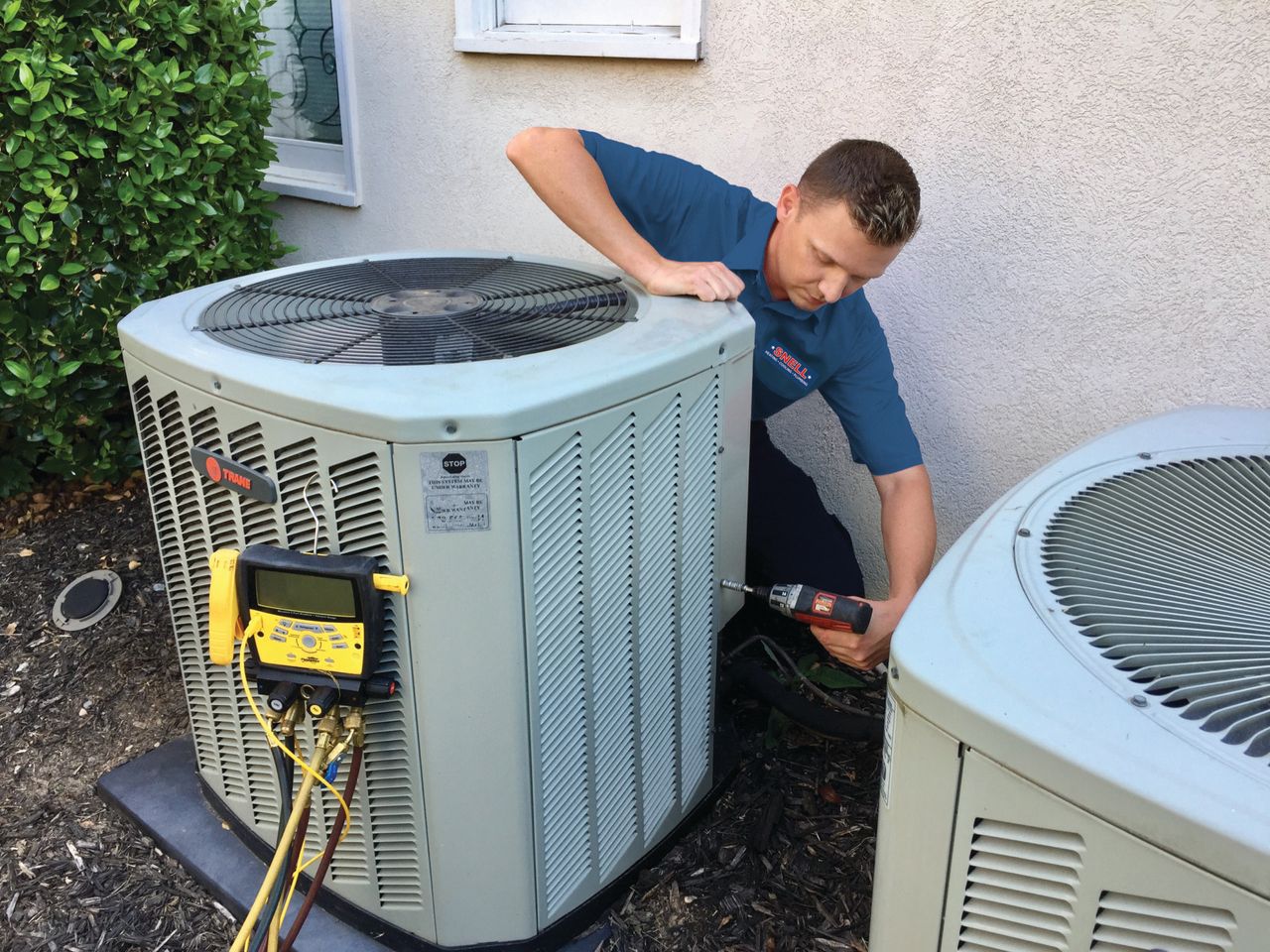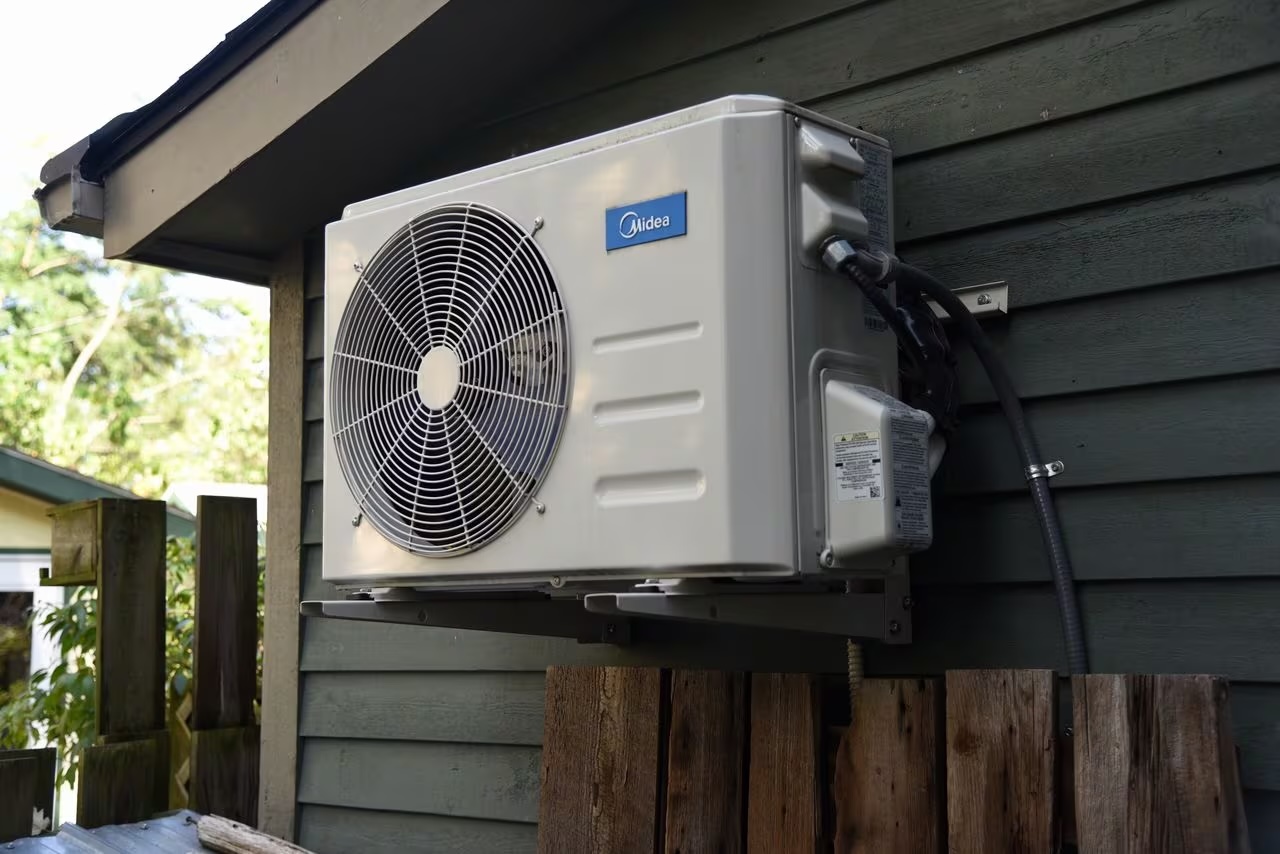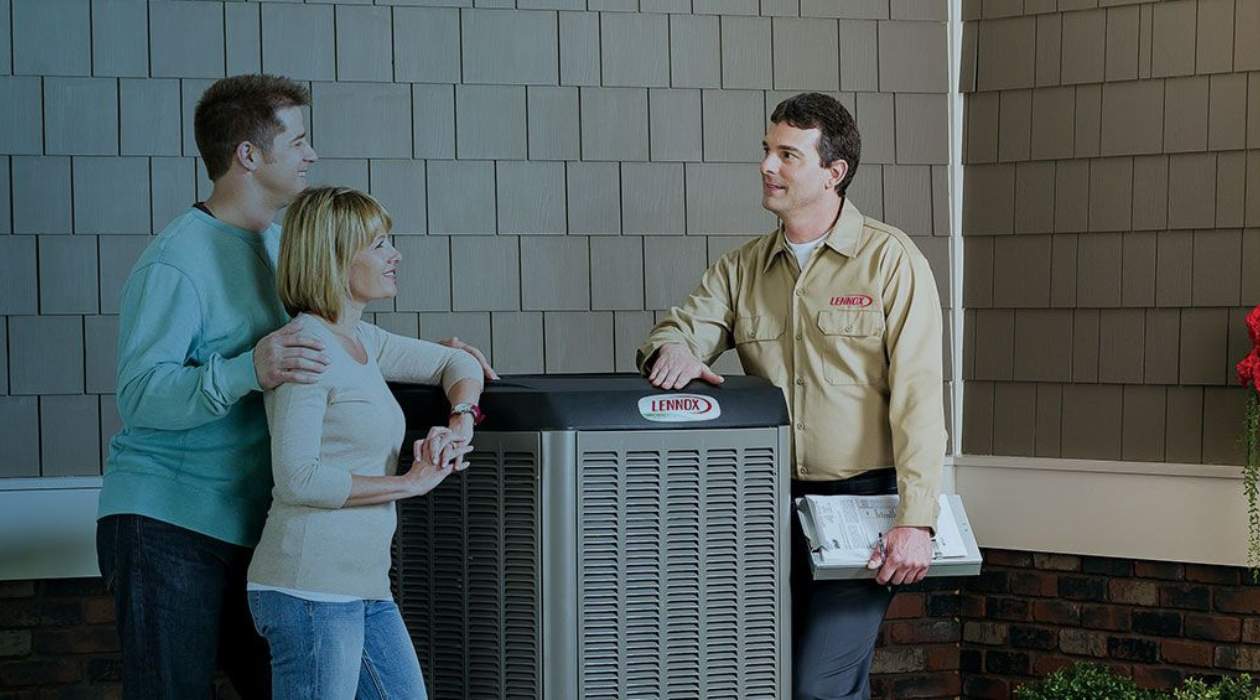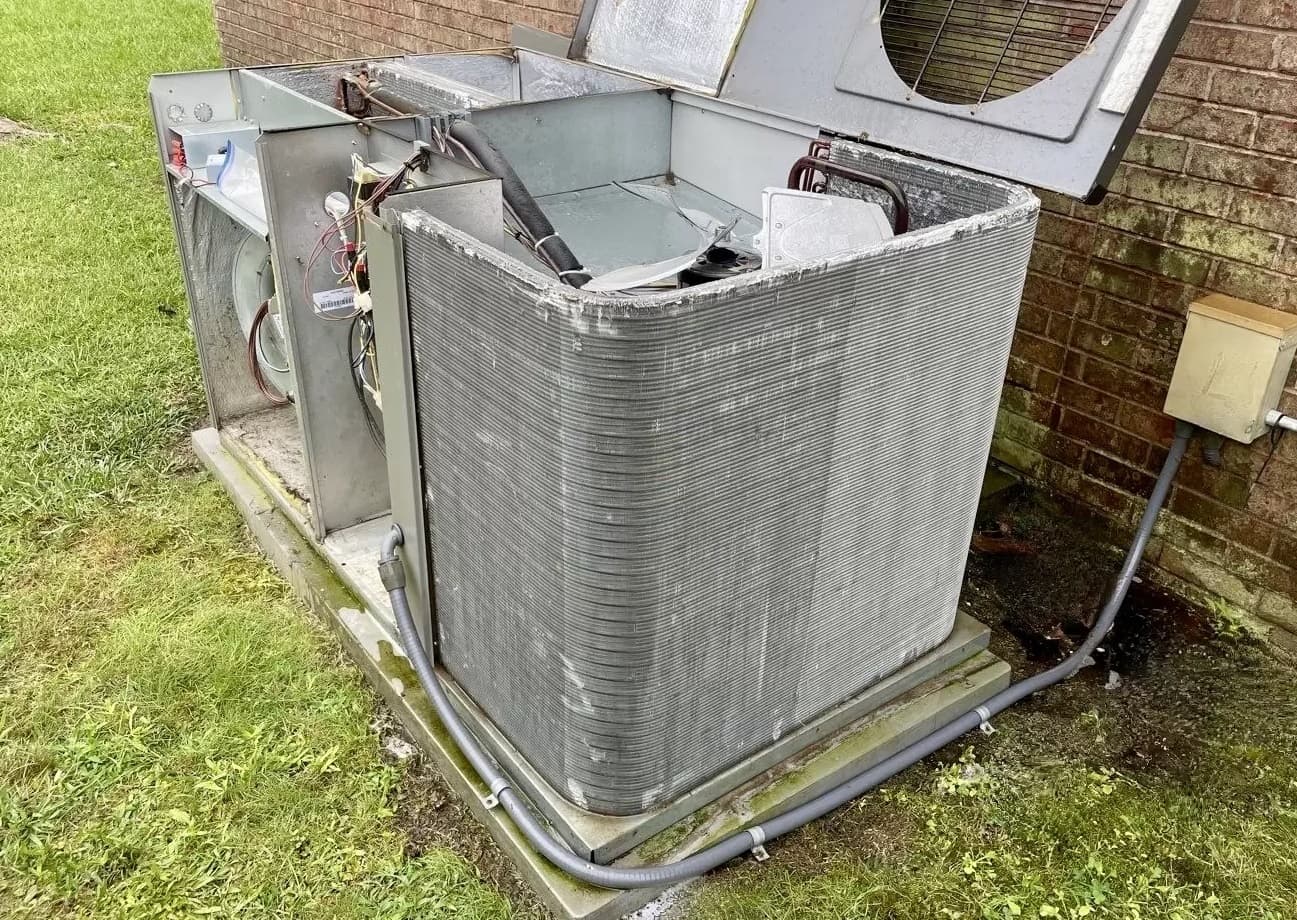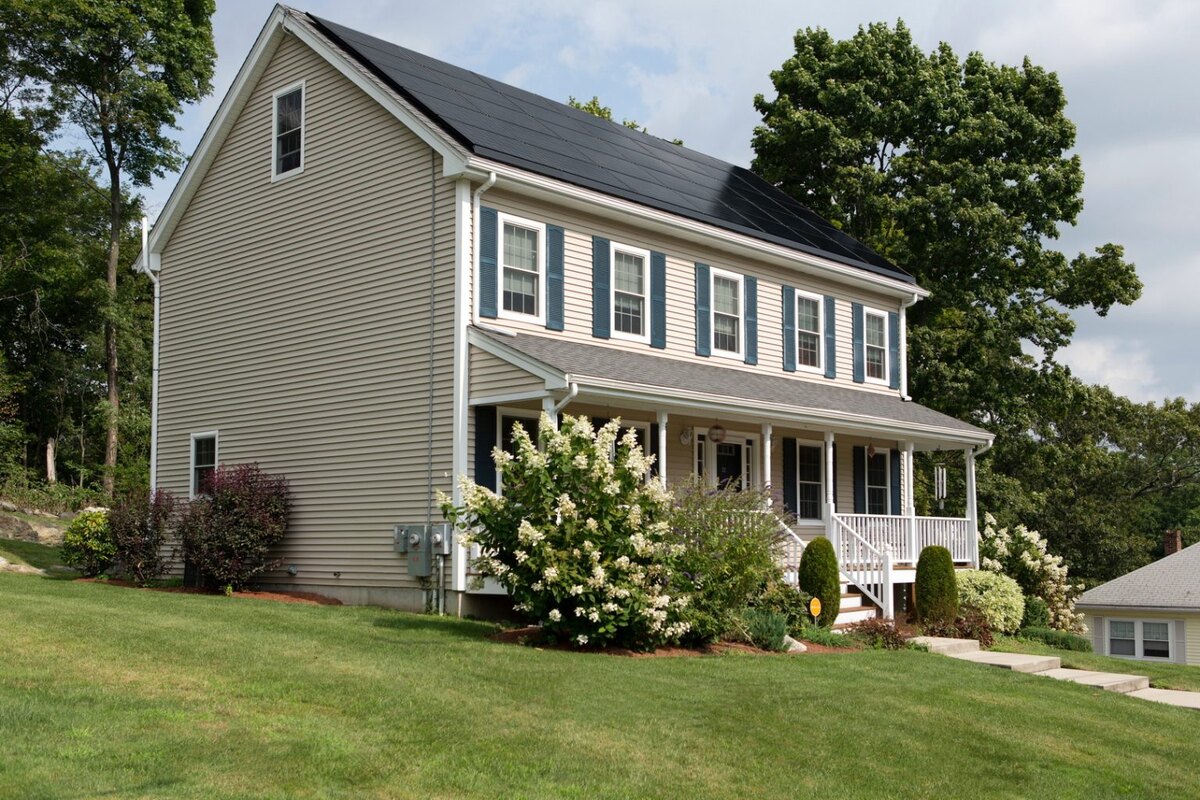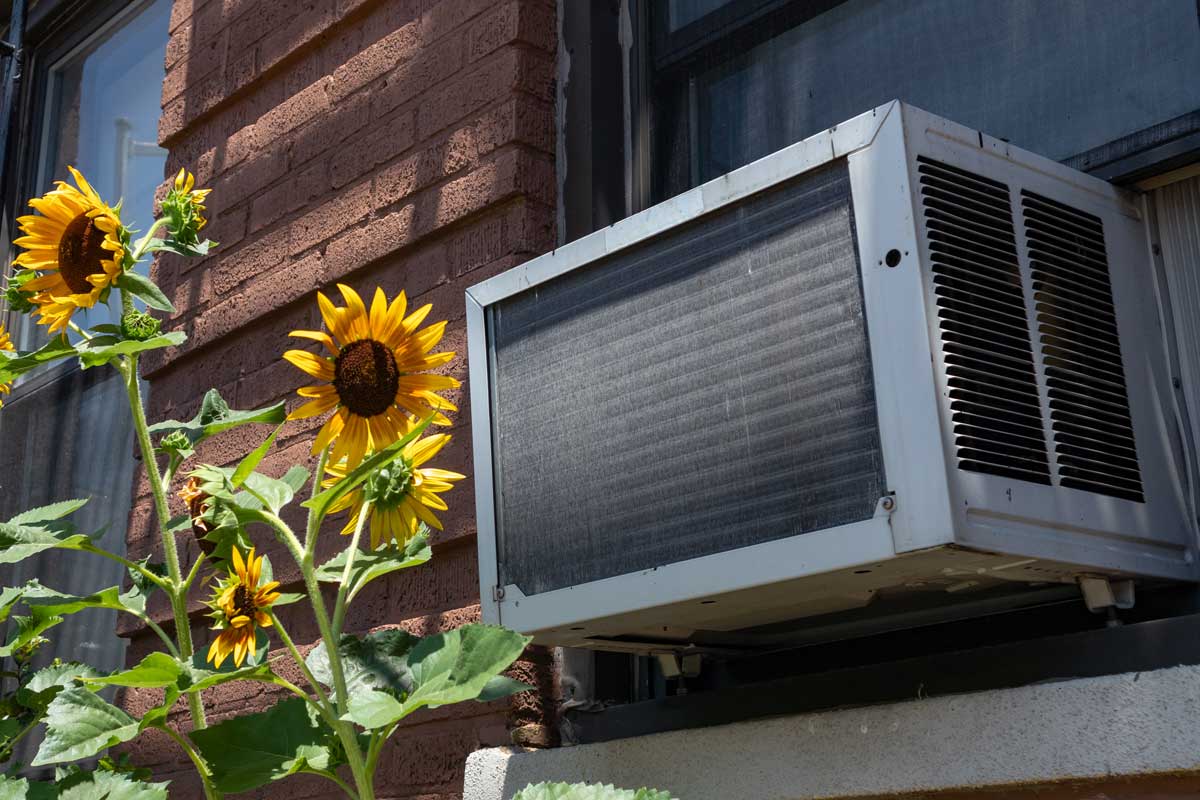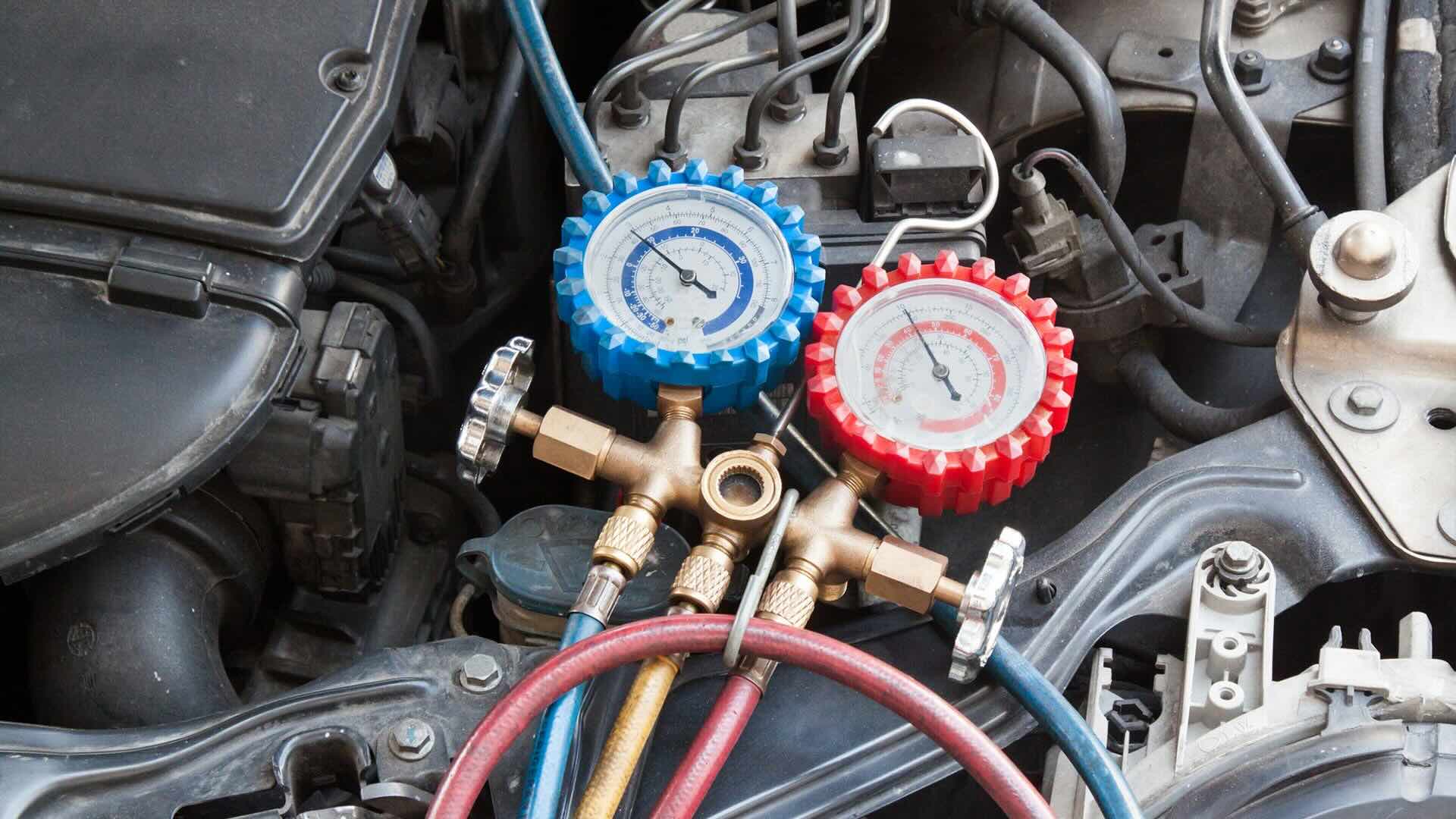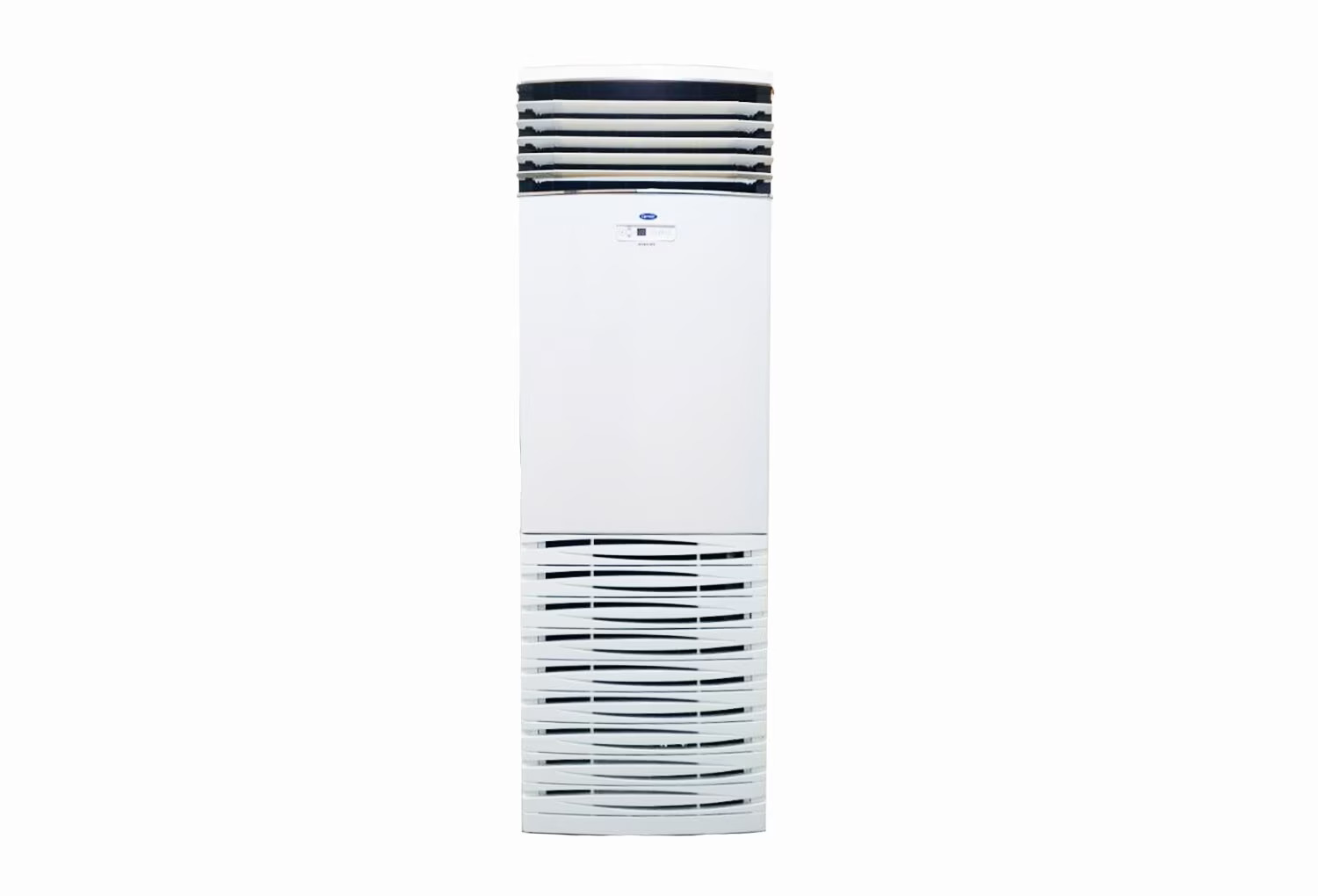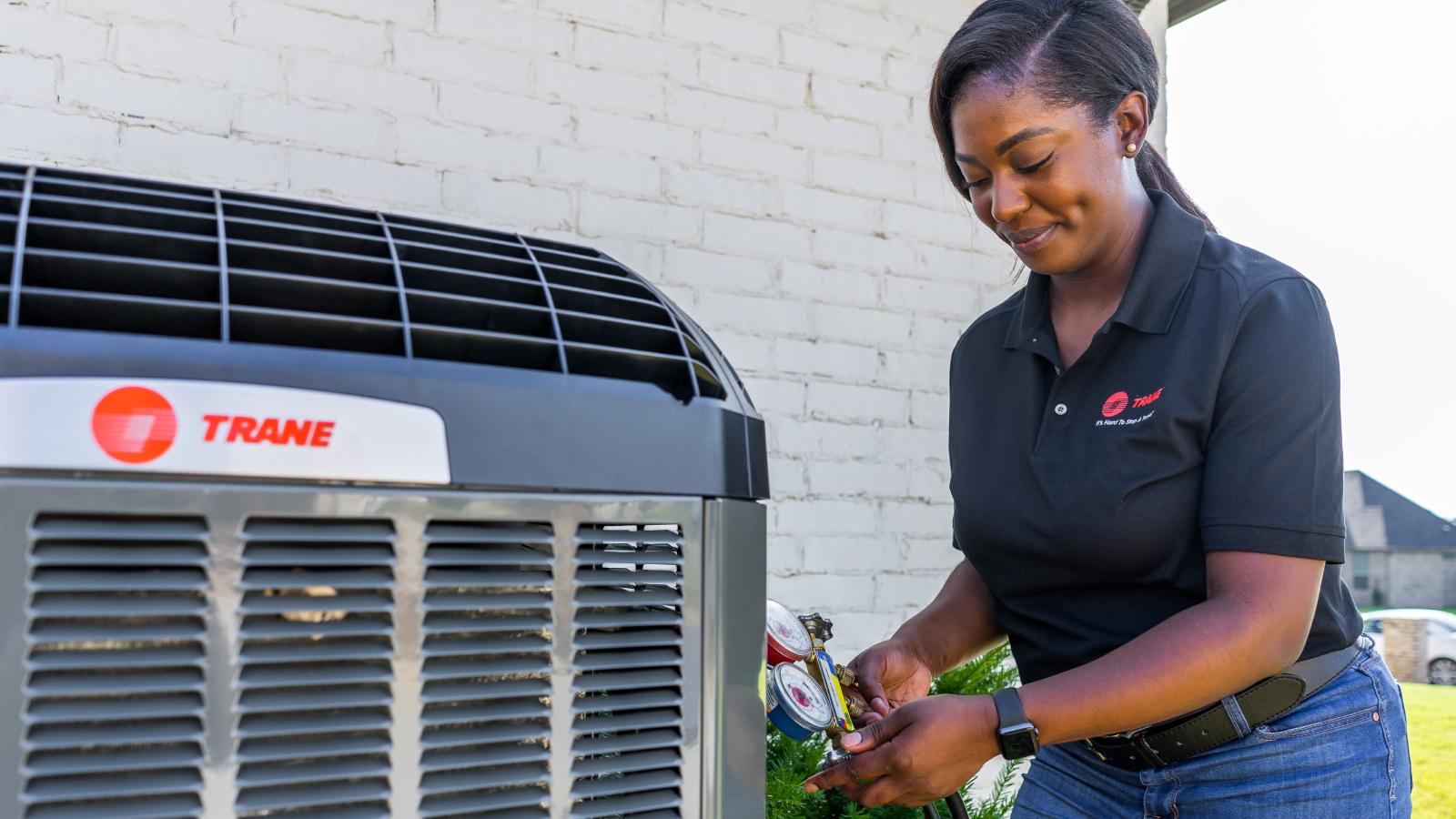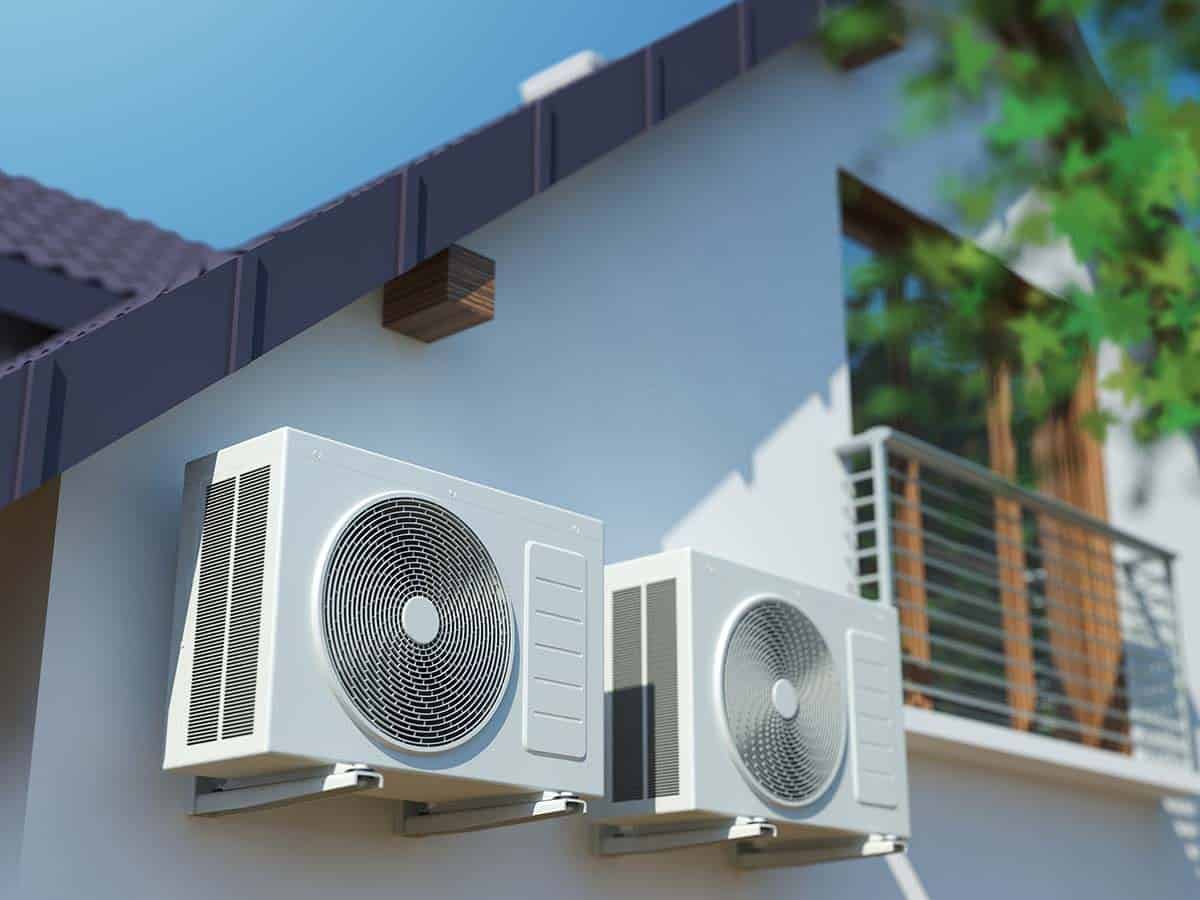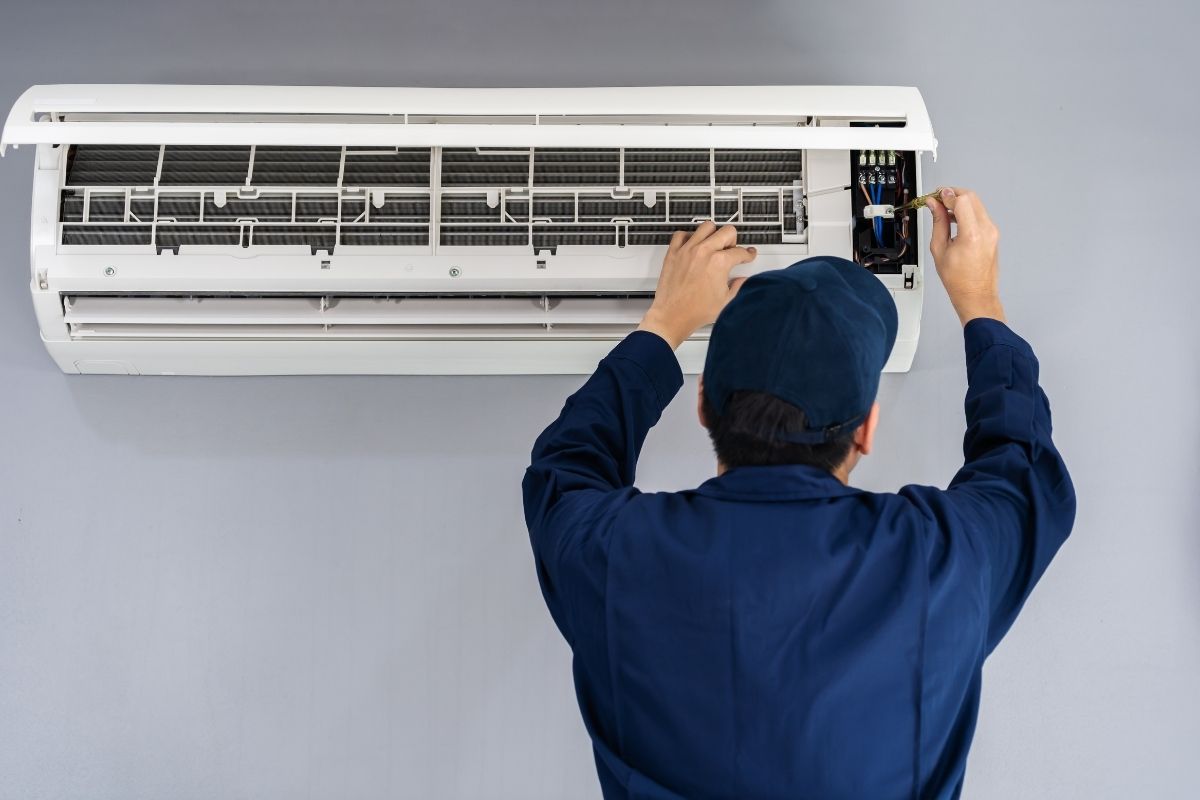Home>Home Maintenance>How Much Does An Air Conditioner Cost For A 2,500 Sq Ft Home
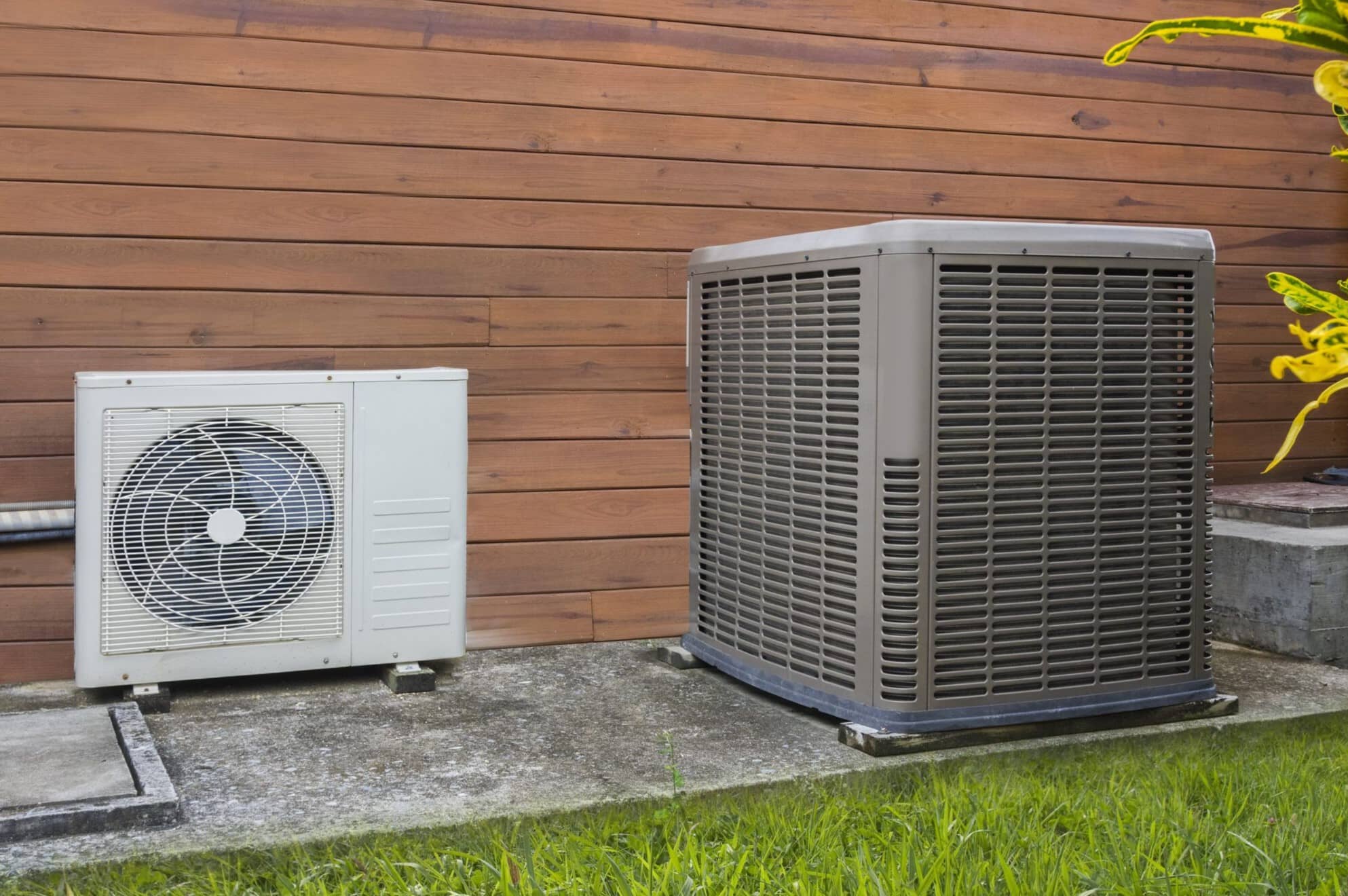

Home Maintenance
How Much Does An Air Conditioner Cost For A 2,500 Sq Ft Home
Modified: March 7, 2024
Find out the cost of an air conditioner for a 2,500 sq ft home with our home maintenance guide. Discover the best prices and options available.
(Many of the links in this article redirect to a specific reviewed product. Your purchase of these products through affiliate links helps to generate commission for Storables.com, at no extra cost. Learn more)
Introduction
Welcome to our guide on the cost of installing an air conditioner in a 2,500 square foot home. When summer temperatures soar, having a reliable and efficient cooling system becomes essential for maintaining comfort and indoor air quality. However, the cost of purchasing and installing an air conditioner can vary significantly depending on various factors.
In this article, we’ll discuss the factors that affect the cost of an air conditioner, the different types of air conditioners available, and how to choose the right size unit for a 2,500 square foot home. We’ll also explore the average cost of air conditioners for homes of this size and highlight additional costs that homeowners should consider. Lastly, we’ll delve into the benefits of investing in a high-quality air conditioner.
By the end of this guide, you’ll have a clear understanding of the expenses involved in installing an air conditioner for your 2,500 square foot home, which will help you make an informed decision and stay cool during those hot summer months.
Key Takeaways:
- Choosing the right air conditioner for your 2,500 sq ft home involves considering factors like size, type, and efficiency ratings to ensure optimal cooling and energy savings.
- Investing in a high-quality air conditioner may have a higher upfront cost, but it offers benefits like improved energy efficiency, consistent cooling, better air quality, and peace of mind for long-term comfort.
Read more: What Size Air Conditioner For 1800 Sq. Ft
Factors Affecting the Cost of an Air Conditioner
Before diving into the specific costs, it’s important to understand the factors that can influence the overall price of an air conditioner installation. By considering these factors, you can better estimate the expenses involved and make a well-informed decision.
- Size of the Home: The size of your 2,500 square foot home plays a significant role in determining the size and capacity of the air conditioning unit you’ll need. Larger homes will require more powerful and costly units to effectively cool the space.
- Type of Air Conditioner: There are several types of air conditioners available, including central air conditioning systems, ductless mini-split systems, and window units. Each type has its own associated costs, with central air conditioning systems generally being the most expensive option due to the extensive ductwork required.
- Efficiency Ratings: Energy efficiency is an important consideration when choosing an air conditioner. Units with higher efficiency ratings, measured by the Seasonal Energy Efficiency Ratio (SEER), are generally more expensive upfront but can result in long-term energy savings and lower utility bills.
- Installation Requirements: The complexity of the installation can impact the cost. For example, if your home doesn’t already have ductwork, installing a central air conditioning system will require additional expenses for ductwork installation. Similarly, if your home has unique architectural features or limited access to certain areas, the installation process may be more challenging and costly.
- Brand and Quality: Different brands and models of air conditioners vary in price. Higher-end brands may come with premium features and longer warranties, but they also tend to have a higher price tag. It’s important to strike a balance between cost and quality, ensuring that you choose a reputable brand known for its reliability and performance.
- Additional Features: Air conditioners can come with a range of additional features that can impact the cost. These may include programmable thermostats, advanced filtration systems, variable speed motors, or even smart home integration. While these features can enhance comfort and convenience, they can also increase the upfront cost of the unit.
Keep in mind that these factors are interconnected and can influence one another. For example, a larger home may require a higher capacity unit, which will likely be more expensive. Similarly, a higher quality unit with advanced features will generally have a higher price tag.
Now that you understand the factors that affect the cost of an air conditioner installation, let’s explore the different types of air conditioners available for your 2,500 square foot home.
Different Types of Air Conditioners
When it comes to choosing the right air conditioner for your 2,500 square foot home, it’s important to understand the different types available. Each type has its own features, installation requirements, and associated costs. Let’s explore the most common options:
- Central Air Conditioning Systems: Central air conditioning systems are the most common choice for larger homes. They consist of a central unit that cools and dehumidifies the air, which is then distributed throughout the home via ductwork. These systems provide consistent and even cooling but require proper ductwork installation, which can increase the overall cost of the installation.
- Ductless Mini-Split Systems: Ductless mini-split systems are a great alternative to central air conditioning, especially for homes without existing ductwork. These systems consist of an outdoor compressor unit and one or more indoor air handlers. They offer flexibility in zoning, allowing you to control the temperature in different areas of your home independently. While the initial cost of a ductless mini-split system may be higher, the absence of ductwork installation costs can make it a cost-effective option in the long run.
- Window Air Conditioners: Window air conditioners are a popular and affordable choice for cooling individual rooms. These units are installed in a window or a specially designed slot in the wall. They are relatively easy to install and can provide efficient cooling for smaller areas. However, they are not suitable for cooling an entire 2,500 square foot home and may require multiple units to cool larger spaces.
- Portable Air Conditioners: Portable air conditioners are similar to window units but are designed to be mobile. These units can be moved from room to room and typically come with a venting kit that allows them to exhaust hot air through a window. While portable air conditioners offer convenience, they are generally less efficient than other types of air conditioners and may not be the best option for cooling an entire home.
Each type of air conditioner has its own pros and cons, so it’s important to consider your specific needs, budget, and installation requirements when making a decision.
Now that you have a better understanding of the different types of air conditioners available, let’s move on to the next section: choosing the right size air conditioner for your 2,500 square foot home.
Choosing the Right Size Air Conditioner for a 2,500 Sq Ft Home
Choosing the correct size air conditioner for your 2,500 square foot home is crucial for optimal cooling efficiency and comfort. An undersized unit will struggle to cool the space adequately, while an oversized unit will cycle on and off frequently, resulting in energy waste and poor humidity control. Here’s how to determine the right size air conditioner for your home:
- Calculate the Cooling Load: The first step is to calculate the cooling load, which is the amount of cooling capacity required to maintain a comfortable indoor temperature. Several factors influence the cooling load, including the size of your home, insulation level, number of windows, orientation, ceiling height, and more. It’s recommended to seek the assistance of a professional HVAC contractor to perform a cooling load calculation, as they have the expertise and tools to provide an accurate assessment.
- Consider the Unit’s British Thermal Units (BTUs): Air conditioners are sized based on their cooling capacity, measured in British Thermal Units (BTUs). The higher the BTU rating, the larger the cooling capacity of the unit. However, simply opting for the highest BTU rating may not be the best approach. The cooling load calculation will help determine the appropriate BTU range for your 2,500 square foot home.
- Factors to Adjust BTU Calculation: When determining the appropriate BTU range, consider certain factors that may require adjustments. For example, if your home receives excessive sunlight, additional insulation, or has large windows, adjustments may be necessary to ensure proper cooling capacity. Working with a professional HVAC contractor will ensure these factors are taken into account.
- Efficiency Ratings: In addition to BTU capacity, consider the efficiency rating of the air conditioner. Look for units with higher SEER (Seasonal Energy Efficiency Ratio) ratings, as they provide better energy efficiency and cost savings in the long run. However, a higher SEER rating typically comes with a higher upfront cost.
- Consult with a Professional: To ensure an accurate assessment of your cooling needs and proper sizing of the air conditioner, it’s always recommended to consult with a professional HVAC contractor. They have the expertise to consider all the necessary factors and provide you with the most suitable options for your 2,500 square foot home.
Remember, choosing the right size air conditioner is essential for effective cooling and energy efficiency. By working with a professional, you can ensure that your cooling system meets the specific requirements of your home.
Now that you understand how to choose the right size air conditioner for your 2,500 square foot home, let’s move on to discussing the average cost of air conditioners for homes of this size.
When considering the cost of an air conditioner for a 2,500 sq ft home, it’s important to factor in the size and efficiency of the unit, installation costs, and any additional features. It’s best to consult with a professional to get an accurate estimate for your specific needs.
Average Cost of Air Conditioners for a 2,500 Sq Ft Home
The cost of air conditioners for a 2,500 square foot home can vary depending on factors such as the type of unit, efficiency rating, installation requirements, and brand. It’s important to keep in mind that the following figures are averages and can vary based on your specific needs and location.
For central air conditioning systems, the average cost for a 2,500 square foot home can range from $3,500 to $7,500 or more, including installation. This price includes the cost of the unit, ductwork installation or modifications, and labor. Factors such as the complexity of the installation, quality of the unit, and additional features can influence the final cost.
Ductless mini-split systems, on the other hand, may range from $2,000 to $5,000 for a 2,500 square foot home, including installation. The absence of ductwork installation can make ductless systems more cost-effective. However, factors such as the number of indoor air handlers and the complexity of the installation can impact the final price.
Window air conditioners and portable units are typically more affordable options, but they may not provide sufficient cooling for an entire 2,500 square foot home. Window units can range from $200 to $800 or more, depending on the size and efficiency rating. Portable air conditioners may range from $300 to $1,000 or more, considering factors such as cooling capacity and additional features.
It’s important to note that these figures do not include any additional costs you may incur, such as permits, electrical work, or insulation upgrades. Additionally, prices can vary based on the region and market conditions.
When considering the cost of an air conditioner, it’s essential to weigh the upfront investment against the long-term benefits. Energy-efficient units may have a higher initial cost but can lead to significant energy savings over time, resulting in lower utility bills.
To get an accurate estimate for your specific needs, it’s recommended to consult with an HVAC professional who can assess your home and provide you with more precise cost calculations.
Now that we’ve covered the average cost of air conditioners, let’s explore some additional costs to consider when installing a cooling system in your 2,500 square foot home.
Additional Costs to Consider
When installing an air conditioner in your 2,500 square foot home, there are several additional costs to consider beyond the price of the unit itself. These costs can impact the overall budget of your installation project. Let’s explore some of the common additional costs:
- Ductwork Installation or Modifications: If you’re opting for a central air conditioning system, and your home doesn’t have existing ductwork, you’ll need to consider the cost of ductwork installation or modifications. This can involve hiring a contractor to install new ducts or make modifications to the existing ones. Factors such as the size of your home and the accessibility of the installation area can influence the cost.
- Permits: Depending on your local regulations, you may need to obtain permits before installing a new air conditioner. Permit costs can vary depending on your location, so it’s essential to check with your city or municipality to determine what permits are required and how much they will cost.
- Electrical Work: Depending on the type and capacity of your new air conditioner, you may need to upgrade or modify your electrical system to accommodate the unit’s power requirements. This can involve hiring an electrician to install a new electrical circuit or upgrade the existing one. The cost will depend on the complexity of the electrical work.
- Insulation Upgrades: Ensuring your home has proper insulation is crucial for efficient and effective cooling. If your home lacks sufficient insulation, you may need to invest in insulation upgrades to prevent cool air from escaping and hot air from infiltrating the living space. The cost of insulation upgrades will depend on the size of your home and the extent of the upgrades needed.
- Maintenance and Warranty: It’s important to factor in the cost of regular maintenance to keep your air conditioner in optimal condition. This can involve annual inspections, cleaning, and filter replacements. Additionally, consider purchasing a warranty to protect your investment. While these costs are ongoing, they are essential for the long-term performance and longevity of your cooling system.
It’s vital to budget for these additional costs to ensure a smooth and successful installation process. Consulting with HVAC professionals and obtaining quotes from different contractors can help you estimate these expenses more accurately.
Now that we’ve covered the additional costs associated with installing an air conditioner, let’s explore the benefits of investing in a high-quality cooling system for your 2,500 square foot home.
Benefits of Investing in a High-Quality Air Conditioner
Investing in a high-quality air conditioner for your 2,500 square foot home can have numerous benefits, making it a worthwhile investment. Let’s explore some of the advantages of choosing a high-quality cooling system:
- Improved Energy Efficiency: High-quality air conditioners often come with advanced features and technologies that enhance energy efficiency. Units with higher SEER (Seasonal Energy Efficiency Ratio) ratings can provide substantial energy savings, resulting in lower utility bills and reduced environmental impact.
- Consistent and Even Cooling: High-quality air conditioners are designed to provide consistent cooling throughout your home, ensuring that each room is kept at a comfortable temperature. This eliminates hot spots and ensures optimal comfort for you and your family.
- Better Indoor Air Quality: High-quality air conditioners often come equipped with advanced filtration systems that can remove dust, pollen, allergens, and other airborne particles, improving the indoor air quality of your home. This is particularly beneficial for individuals with allergies or respiratory conditions.
- Quieter Operation: High-quality air conditioners are often engineered to provide quieter operation, ensuring minimal disturbance and a peaceful living environment. This is especially important if you have bedrooms or living spaces located close to the outdoor unit.
- Longer Lifespan: High-quality air conditioners are typically built with durable components and superior craftsmanship, resulting in a longer lifespan compared to lower-quality units. This can save you money in the long run by reducing the need for frequent repairs or premature replacements.
- Enhanced Comfort Features: High-quality air conditioners often come with additional features and options that can enhance your comfort, such as programmable thermostats, variable speed motors, and smart home integration. These features allow for precise temperature control and customization to suit your specific preferences.
- Peace of Mind: Investing in a high-quality air conditioner provides peace of mind, knowing that your cooling system is reliable, efficient, and backed by a solid warranty. This can relieve stress and provide confidence in your choice of cooling solution.
While high-quality air conditioners may come with a higher upfront cost, the benefits they provide in terms of energy efficiency, comfort, indoor air quality, and longevity make them a worthwhile investment. It’s important to weigh the long-term advantages against the upfront cost to make the best decision for your 2,500 square foot home.
Now that we’ve explored the benefits of investing in a high-quality air conditioner, let’s conclude our guide on the cost of installing an air conditioner for a 2,500 square foot home.
Conclusion
Installing an air conditioner in your 2,500 square foot home is a significant decision that requires careful consideration of various factors. Throughout this guide, we’ve discussed the factors that can influence the cost of an air conditioner, the different types of air conditioners available, the importance of choosing the right size unit, the average costs involved, additional expenses to consider, and the benefits of investing in a high-quality air conditioner.
When determining the cost of an air conditioner installation, factors such as the size of your home, type of air conditioner, efficiency ratings, installation requirements, and brand can all affect the overall price. It’s crucial to strike a balance between your budget and the features and performance you desire in a cooling system.
Properly sizing your air conditioner is vital to ensure efficient cooling and comfort. Working with a professional HVAC contractor to calculate the cooling load and recommend the appropriate BTU capacity will ensure optimal performance for your 2,500 square foot home.
When it comes to costs, central air conditioning systems and ductless mini-split systems tend to have higher upfront expenses compared to window or portable units. Additionally, factors such as ductwork installation or modifications, permits, electrical work, insulation upgrades, maintenance, and warranties should be considered to get a more accurate estimate of the overall expenses.
Investing in a high-quality air conditioner offers numerous advantages, including improved energy efficiency, consistent and even cooling, enhanced indoor air quality, quieter operation, longer lifespan, and comfort features. Although high-quality units may have a higher initial cost, the long-term benefits can outweigh the upfront investment.
In conclusion, taking the time to research and consider your options, consulting with professionals, and weighing the costs and benefits will help you make an informed decision when installing an air conditioner in your 2,500 square foot home. By choosing the right unit and investing in quality, you can stay cool, comfortable, and enjoy energy-efficient cooling for years to come.
Frequently Asked Questions about How Much Does An Air Conditioner Cost For A 2,500 Sq Ft Home
Was this page helpful?
At Storables.com, we guarantee accurate and reliable information. Our content, validated by Expert Board Contributors, is crafted following stringent Editorial Policies. We're committed to providing you with well-researched, expert-backed insights for all your informational needs.
